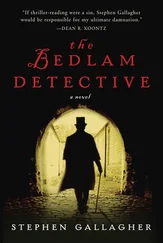“She’s here,” he mumbled, trying to act casual. “In the council office.”
“Who?” I yawned. The center of my back was throbbing. I started unstrapping my body armor and took off my helmet. My scalp gasped.
“Her,” Snoop said, drawing out the word and darting his eyes to the hallway that led to the council office. “Alia got her in. To see you.”
I was halfway to the office before I wished I’d had a little time to clean up — I felt grungy and knew I looked it, too.
Alia was leaving the room as I approached it. Her nephew had been released after forty-eight hours for lack of evidence, and was back on the Sahwa beat. She brushed past me and ignored my hello, not that I blamed her.
I walked into the room and locked the door. Rana was jogging in place on the taupe carpet, another impromptu burst of Tae Bo. She’d taken off her sandals, holding them in her far hand, and I saw her feet for the first time, bare and small as a child’s. Her toenails shone with powder-blue polish. Under the flickering electric lamp, the black of her hair seemed to pulse. She’d been snuck into the outpost as cleaning help, wearing a black abaya and head scarf like Alia’s.
“This carpet feels nice,” she said, ending her session. “Hope that’s okay.”
She must have no idea how serious shit is now, I thought. Tae Bo? Now?
After piling my body armor and rifle into a corner, I sat down at the table, across from her. I tried not to stare but couldn’t help myself; it’d been only a couple of weeks since I’d last seen her, but it felt much longer. I like her as a person and it’s okay to like her as a person, I said to myself. So chill out.
“I talked to Yousef,” I began. I’d never seen Rana with makeup before. But under the lamp, I made out a large dab of concealer around her left eye. Hints of swelling lay under it.
“He hit you,” I said.
She looked right through me, her green eyes firm. I blinked and blinked, waiting. The portrait of the dead mayor and his mustache smiled down at us from the wall.
“He thinks al-Qaeda will come for us now that the town knows I’ve helped Americans.”
“He can’t hit you.”
“This isn’t America, Jack.”
A quiet like air pressure rushed the room. She was right, but that didn’t make me wrong. I looked down at the table and told her Yousef’s prices for Syria and Beirut.
“I don’t have that kind of money. What — what am I going to do? We must leave soon. We must.”
I was struggling to raise my head, so I didn’t.
“How much do you have? Yousef seemed pretty firm, but maybe if you’re close?”
“No, Jack. You don’t understand. Even if I borrowed, even if I sold my mother’s jewelry, I’d have no more than ten million dinars.”
“Fuck him,” I said. “If Saif were still around, he’d know what to do.”
She closed her eyes and slid down her chair. I forced myself to look up toward her, then at her. “Perhaps,” she said. “But don’t blame Yousef. He’s the only one who can help.”
She put her face into her hands and started rubbing her temples. I expected tears, but none came. She had the face of a seer, distant and purposeful. I wondered where Ahmed and Karim were. Probably kicking around the soccer ball, hoping for soldiers to show up and play, which was ridiculous, even in a war zone.
I kept watching Rana rub her temples. Something about it reminded me of my mom, and my mom with Will and me, dressing us for church on Sunday mornings, back when she would always lay out matching khakis and polo shirts for us. I’d usually protest like a punk, until Will would grab me and say if I didn’t quit, he’d beat the hell out of me, that Mom needed this, so we were going to go to church in matching clothes and we’d be happy about it. I’d tell him fine, I was going to do it, but not because he was telling me to.
I want to leave Iraq having done a good thing, I remembered. I need to. A good thing free of qualifiers, of ambiguity. A thing that actually matters.
Helping a mother and her two boys matters, I thought. It matters a lot. It probably matters more than the entire war ever will.
“I’ll do it,” I said. “I’ll get the money.”
I didn’t know how yet, not at all. But I would.
“No,” she said, her dimple sinking into a small smile. She thought I wasn’t serious. “That’s very nice. But it’s too much for anyone.”
“I insist.” My voice sounded like a stranger’s. “I can’t leave the three of you here, alone. Let me do this.”
That was when they began. Only two or three drops slipped down her face, but still, there were tears and there were tears because of what I’d said I’d do.
“I hate crying,” she said. “Mostly I hate people who cry.”
I thought about reaching across the table and taking her hand in mine, but unseen irons held me fast. We sat there for many minutes, her thanking me, me reassuring the both of us that things would be okay. I was a sentimentalist playing stoic, but she didn’t seem to mind.
“It’s gotta be Beirut,” I said. “Syria seems like it’s about to implode. We can’t send you there.”
She nodded. The tears had faded by now, replaced by cold pragmatics. She’d heard that some smugglers had plenty of room for personal effects, whereas others said to bring only what you could carry. She’d tell her boys they were going on a trip. And what of Malek? She didn’t hate him, he’d tried so hard, but there was no way he’d let them go if he knew. She’d write him a letter.
“Easy,” I said, pushing my hands downward against the air, which I hoped was a universal gesture for slowing down. “We’ve still got some time. I’ve got to pay Yousef, for one. Remember to breathe.”
She grinned shyly, as if to hide her stained teeth. “I know. It’s just — if I don’t think like this, I’ll think about how scared I am. I’ve never lived anywhere else. I’ve never even traveled outside Iraq. We must leave, but. This is home.”
“Of course.” I breathed in her muggy perfume and could feel my heart pounding against its cage. I coughed and pushed away the many less-than-noble thoughts that were raging within. “Yousef has done this for others? They’ve arrived safely?”
“Many,” she said. “Some from my tribe.” She was putting her sandals back on, and color was returning to her face. “Do you think it’s like on the postcard?”
I remembered the drawing of the beach and the blue sky and the palm trees. “Beirut’s not heaven,” I said. “Been a lot of strife there for many years.” She nodded like she knew, but her frown gave her away. “But it’ll be a nice place to raise Ahmed and Karim. You’ll be safe.”
Cold pragmatics were seeping into my mind as well. They’d be vulnerable on the road, easy targets. But Snoop can go with them, I realized. He’ll keep an eye on them and get them there. I smiled wide at this thought, something Rana took to be for her. Standing to go, she pulled out her cell phone and snapped a photo of me sitting there, arms draped across the table.
“Handsome,” she said. Then she walked around the table and squeezed my hand. I squeezed back and looked up and into her, determined to show that I wasn’t the type of man who made promises he couldn’t keep, that I was different.
“Thank you,” she said. “You’re no Shaba. And that’s a wonderful thing.”
She bent down and kissed my cheek with dry lips. Then she was gone, the office door closing after her, and I was alone under a flickering light.
I pushed away from the table and stood. “Don’t look at me like that,” I said to the mayor’s portrait. “I’ll figure it out.”
I walked into the hallway and saw Chambers at the end of it. Rana had to have walked past him to leave the outpost. He’d removed his uniform top, and his arms were crossed, his face drawn like he’d just seen a ghost. In a way, for him, he had.
Читать дальше




![Ally Carter - [Gallagher Girls 02 ] - Cross My Heart & Hope To Spy](/books/262178/ally-carter-gallagher-girls-02-thumb.webp)
![Ally Carter - [Gallagher Girls 01] I'd Tell You I Love You But Then I'd Have to Kill You](/books/262179/ally-carter-gallagher-girls-01-i-d-tell-you-i-lo-thumb.webp)






